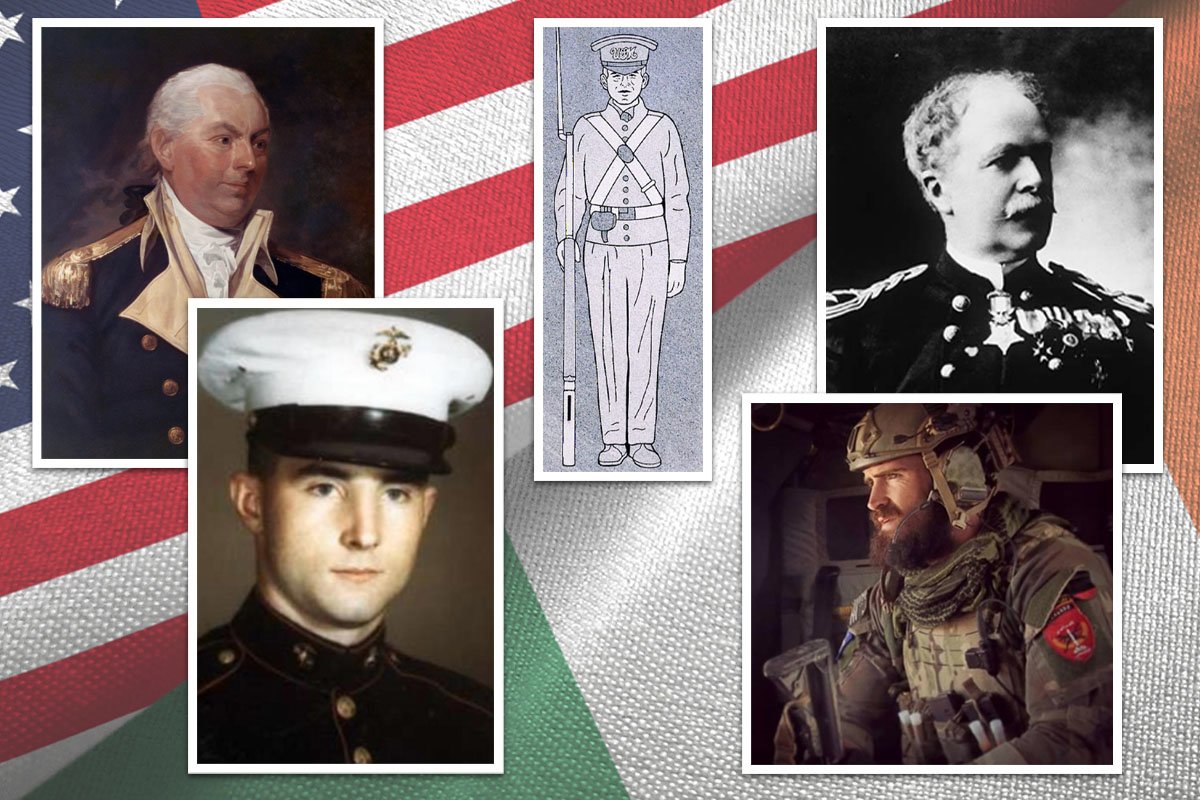
Since the American Revolution, the Irish have filled the ranks of the US military. From the father of the US Navy to modern-day operators, Irish-born immigrants have wielded an unbreakable beam of American military power. Of the 19 Americans who have received more than one Medal of Honor, four of them were Irish immigrants — more than any other single demographic. If you look closely at every conflict in American history, you will find the Irish fighting for Uncle Sam. Here are five notable Irishmen whose service in the US military highlights that long-standing tradition.
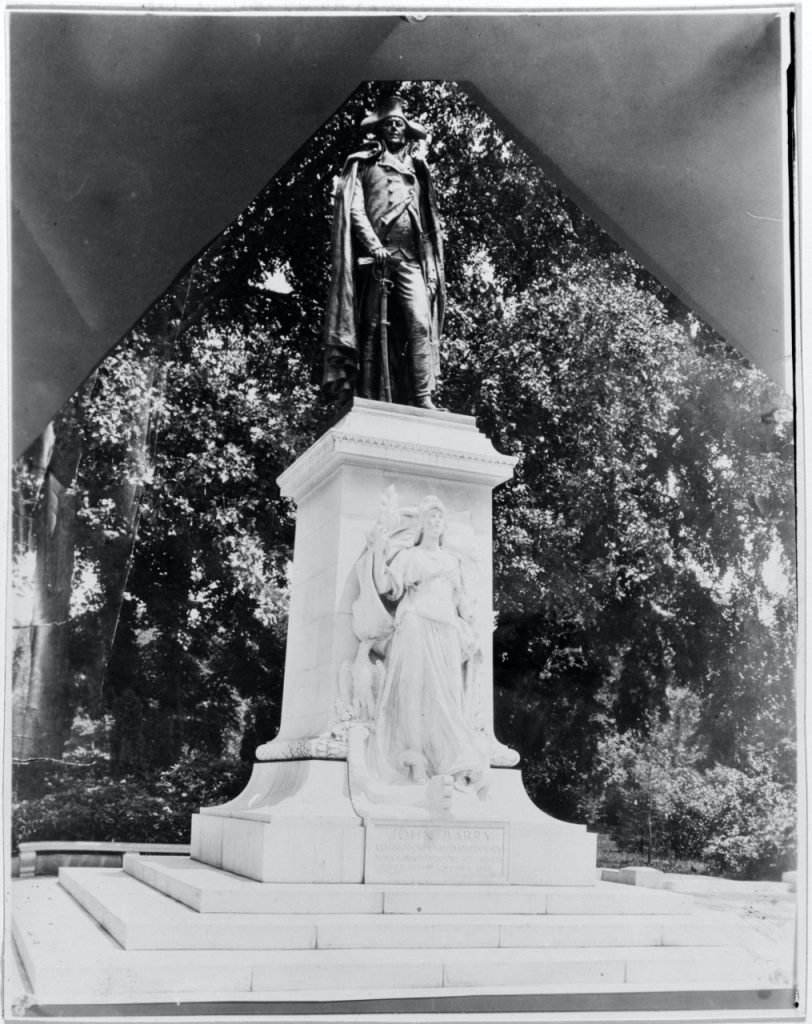
John Barry
Weeks before the Declaration of Independence was pronounced, John Barry, the Irish-born captain of the newly commissioned USS Lexington, was desperate to live up to the expectations placed on him as “the father of the American Navy.” His 14-gun brigantine along with the newly commissioned Colonial fleet was anchored off the coast of Philadelphia, trapped by the Royal Navy’s blockade. Under the cover of heavy fog, Barry managed to break through the enemy armada to open water, where he waited to aid American privateers smuggling much-needed supplies from the Caribbean. According to Mark Donnelly’s book Pirates of New Jersey, Barry received word on June 29, 1776, that the privateer Nancy, carrying 386 barrels of precious gunpowder, was racing toward Cape May, pursued by the Royal Fleet.
Barry made contact with the fleeing Nancy and instructed her to run aground in Turtle Gut Inlet. From there, still concealed by thick fog, Nancy would be safer from the British cannons confined to deep water and would be accessible by Colonial longboats. Patriots manning the longboats then successfully offloaded the priceless cargo. Barry oversaw the salvage of the gunpowder, rescued the crew, and escaped British capture, all while under fire from the large British ships — only suffering one casualty.
Before disembarking the grounded Nancy, Barry ordered the final 100 barrels of gunpowder to be lit with a delayed fuse. As Barry was ferried to safety, he peered through his spyglass in time to see the British boarding party disappear in the massive explosion. By the conclusion of the battle, Barry had outsmarted and outmaneuvered the Royal Navy. His infant fleet successfully saved the cargo, killed the British boarding party, and proved to the world the colonists were a formidable naval force. Through his leadership under fire, Barry forever cemented himself in the annals of American history. He was the first in a long line of Irish-born Americans to stand out in the nation’s military.
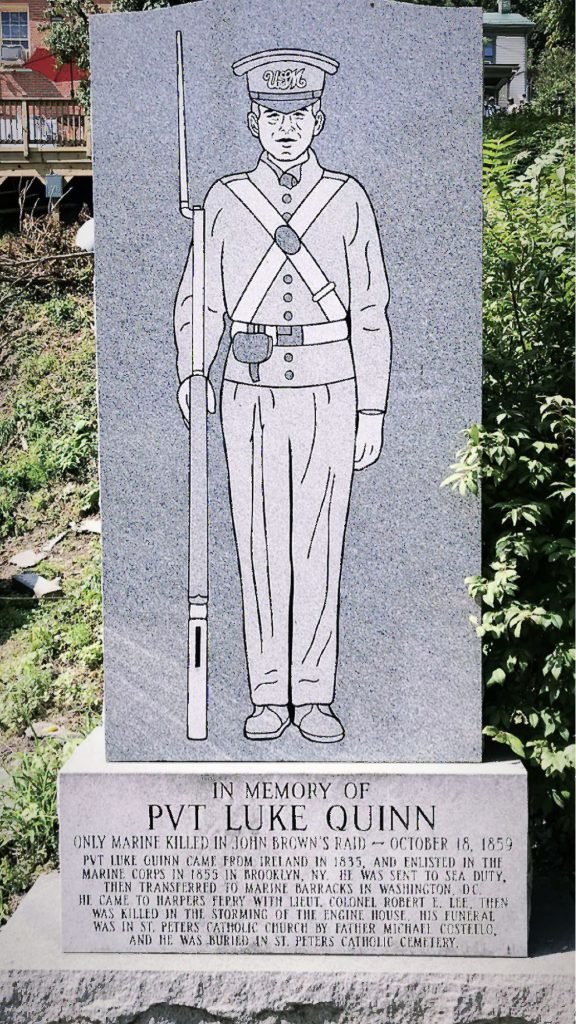
Luke Quinn
Less than a century later, a young Irish immigrant again made history in service of the United States. On Oct. 17, 1859, a group of abolitionists led by John Brown besieged the small river crossing known as Harpers Ferry in an attempt to seize control of the federal armory. The Harpers Ferry armory housed more than 100,000 firearms that Brown intended to confiscate for an army of slaves and abolitionists. He hoped to lead an uprising that would end slavery, but his army never materialized.
Among the 87 troops dispatched from the Washington Navy Yard to quell the uprising was Marine Pvt. Luke Quinn. Born in Ireland in 1835, Quinn had already served nearly four years in the Marine Corps and was nearing the end of his enlistment by the time he boarded the fateful train bound for the small mountain town. When Quinn and the Marines arrived, Brown’s remaining raiders were sheltered in a small carriage house, clinging to a handful of civilian hostages. When US Army Col. Robert E. Lee failed to negotiate Brown into surrendering the hostages, the Marines were ordered to assault the engine house where the raiders hid. Unable to gain access with sledgehammers, a handful of Marines used a ladder as a battering ram, eventually breaking a hole in the door. With fixed bayonets, Quinn and the other Marines poured through the small opening. In the brief firefight that ensued, every one of Brown’s men were killed or captured, and the hostages were rescued. Quinn was mortally wounded, becoming the only Marine fatality.
Bernard Irwin
While Quinn was taking his fateful train ride from DC to Harpers Ferry, another Irish-born private was on his way to making military history. Bernard Irwin emigrated from Roscommon, Ireland, in 1840 when he was 10. After serving in the New York Militia, he finished his education and was promoted to assistant surgeon in the US Army. In 1861, Irwin led a 14-man unit from the 1st Dragoons to attempt a daring rescue of several soldiers being held captive by the feared Apache warrior Chief Cochise. Irwin strategically placed his men around a mountain gorge known as Apache Pass, giving the false appearance that they were just a fraction of a much larger force. As Cochise entered the pass’ most vulnerable point, Irwin startled the chief and successfully negotiated the return of the prisoners. Irwin was later awarded the Medal of Honor for these actions, the earliest for which the medal was awarded. He went on to build a notable career in the Army and even pioneered battlefield medicine with the creation of the first field hospital during the Battle of Shiloh.
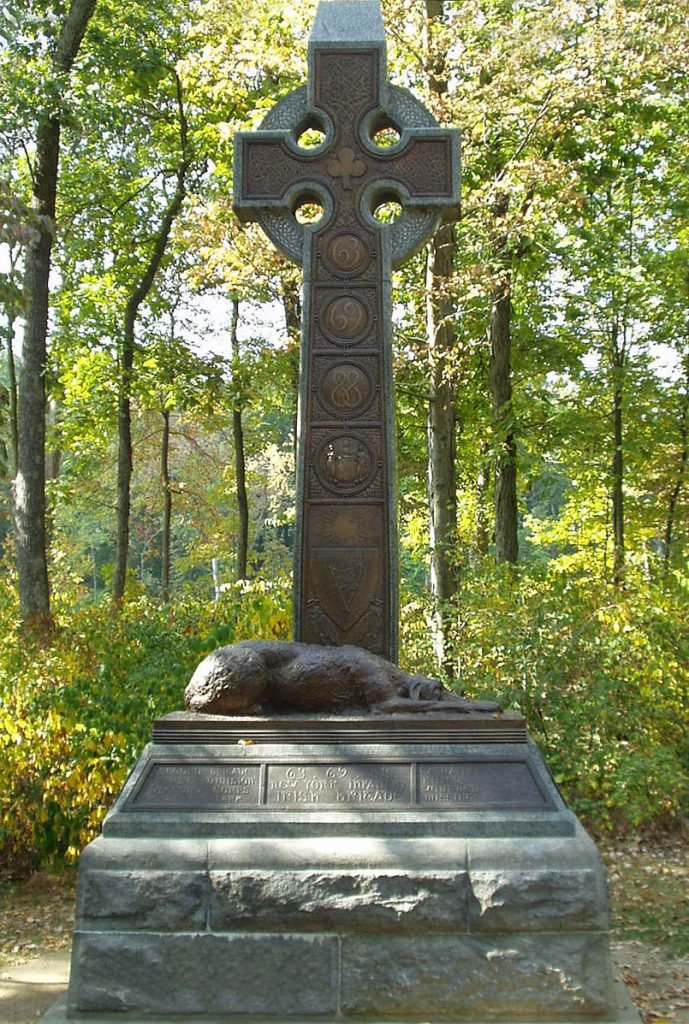
Two months after the events at Apache Pass, the United States entered the deadliest war in its history. Nearly 200,000 Irish Americans served in the Civil War. In fact, there were so many soldiers from Ireland they established their own units, such as the famed “Irish Brigade” of the 69th Infantry Regiment. The Irish Brigade tragically lost more soldiers during the Civil War than all but two other units.
Irish immigrants again distinguished themselves at the turn of the century during the Boxer Rebellion. Among the infamous “China Marines,” three Irish-born Americans — James Cooney, Joseph Killackey, and Martin Hunt — all received the Medal of Honor. During World War I, nearly 1,000 Irish-born Americans gave the last full measure of devotion in service of the United States. This number of immigrant dead was soon surpassed on the battlefields of World War II.
Following World War II, Irish Americans served in Korea, where 28 were killed in action. Twelve years later in Vietnam, 24 were killed. Among those Irish immigrants in Vietnam was a Marine lance corporal from Ballyhaunis, Ireland.
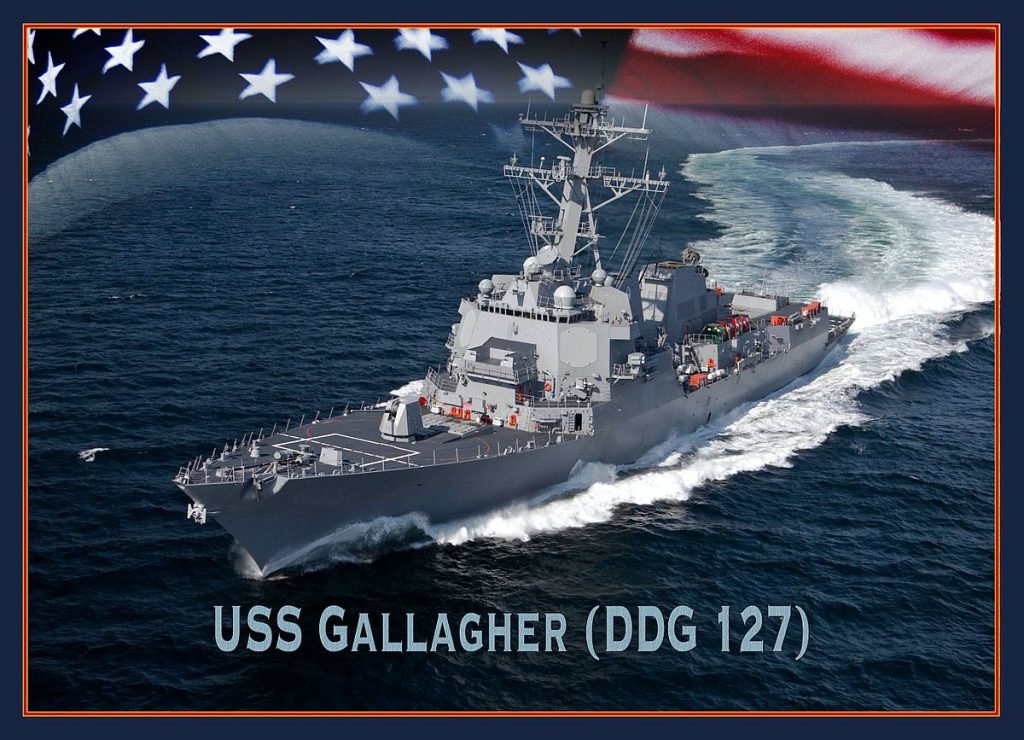
Patrick Gallagher
Patrick Gallagher enlisted in the Marine Corps in 1966. He became a rifleman with 2nd Battalion, 4th Marine Regiment, and was quickly promoted to lance corporal. Later that year Gallagher found himself in Vietnam fighting near Cam Lo. During the fight, an enemy soldier threw a grenade at Gallagher’s position. Seeing the grenade land among his friends, Gallagher kicked the deadly device, which immediately exploded just out of lethal range.
Moments later, a second grenade landed among the Marines. Gallagher again moved toward the threat, this time using his body to cover the grenade. When it didn’t immediately detonate, he threw it into the water, where it exploded. For his actions, Gallagher was awarded the nation’s second highest award for valor, the Navy Cross. Not even a full year later, Gallagher was killed in action. In honor of his sacrifice, Lance Cpl. Gallagher is scheduled to become the namesake of the Navy’s newest guided-missile destroyer, the USS Gallagher.
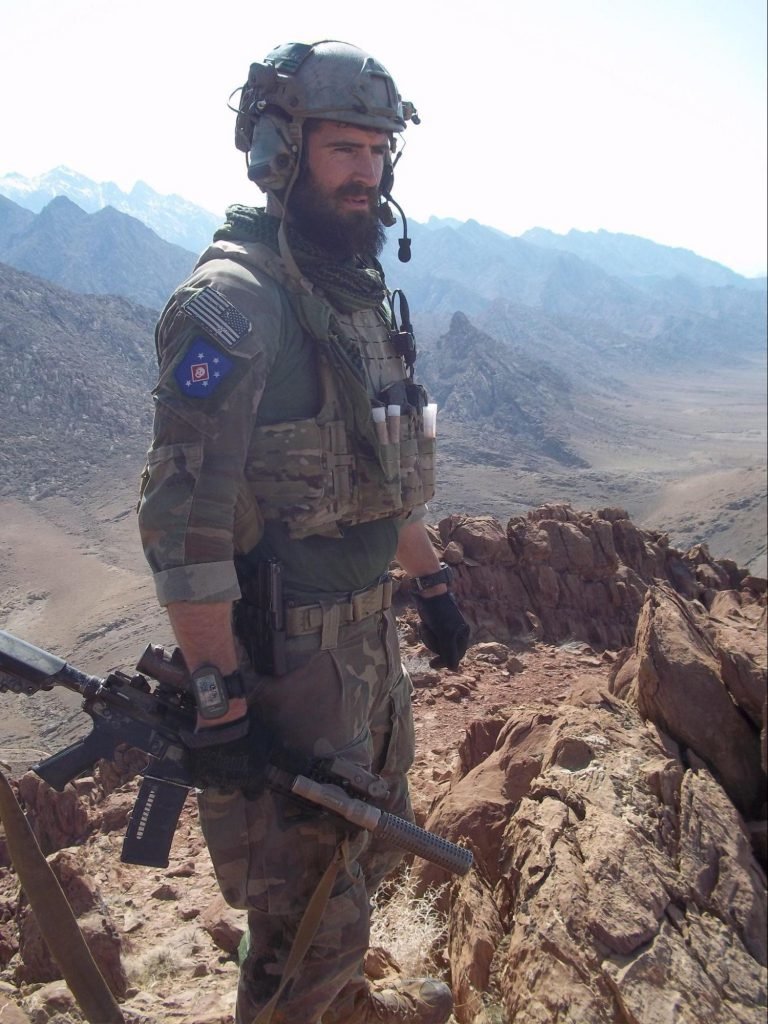
Liam Flynn
The Irish American tradition of service continued into the 21st century. Irish men and women have served in all four branches of the US military during the wars in Iraq and Afghanistan. Among them was Marine Staff Sgt. Liam Flynn. Flynn, a native of Clane, Ireland, enlisted in the Marines in 2006 and served as an infantry squad leader with 2nd Battalion, 8th Marines. He later went on to serve in special operations as a Marine Raider, deploying a total of four times to Iraq and Afghanistan, where he earned several medals for valor, including a Bronze Star. Tragically, Flynn was killed in a training accident in 2015 off the coast of Florida.
Read Next: How Irish American Spymaster ‘Wild Bill’ Donovan Earned His Nickname

Mac Caltrider is a senior staff writer for Coffee or Die Magazine. He served in the US Marine Corps and is a former police officer. Caltrider earned his bachelor’s degree in history and now reads anything he can get his hands on. He is also the creator of Pipes & Pages, a site intended to increase readership among enlisted troops. Caltrider spends most of his time reading, writing, and waging a one-man war against premature hair loss.
BRCC and Bad Moon Print Press team up for an exclusive, limited-edition T-shirt design!
BRCC partners with Team Room Design for an exclusive T-shirt release!
Thirty Seconds Out has partnered with BRCC for an exclusive shirt design invoking the God of Winter.
Lucas O'Hara of Grizzly Forge has teamed up with BRCC for a badass, exclusive Shirt Club T-shirt design featuring his most popular knife and tiomahawk.
Coffee or Die sits down with one of the graphic designers behind Black Rifle Coffee's signature look and vibe.
Biden will award the Medal of Honor to a Vietnam War Army helicopter pilot who risked his life to save a reconnaissance team from almost certain death.
Ever wonder how much Jack Mandaville would f*ck sh*t up if he went back in time? The American Revolution didn't even see him coming.
A nearly 200-year-old West Point time capsule that at first appeared to yield little more than dust contains hidden treasure, the US Military Academy said.












